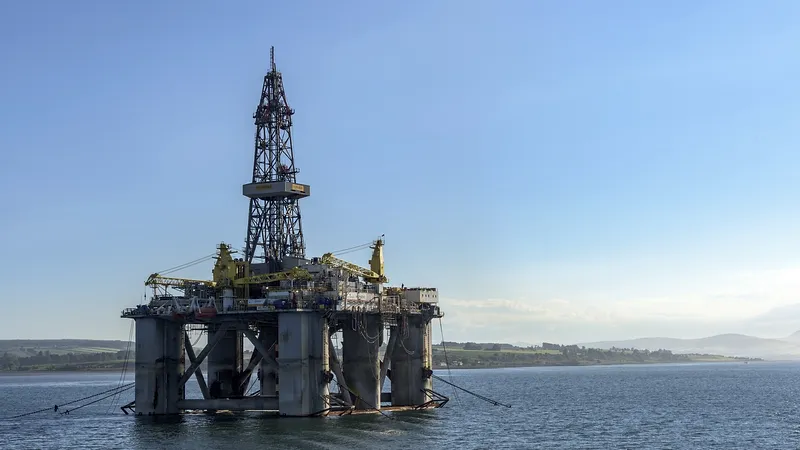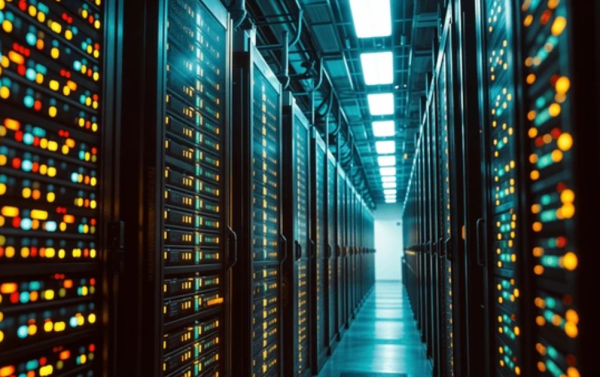The WIllow Project: An Arctic Thrill or Chill?
Off-shore oil rigs are already showing up on the coast of northern Alaska now that the Willow Project has been approved.
Think of your favorite animal; Let it sink in and picture it in your head. Adorable, right? Well, if you picked a Polar Bear, Caribou, or any animals from northern Alaska, they may be at risk of an early demise.
Alaska’s pristine wilderness is currently on trial for a catastrophic mistake. The controversial Willow Project has experts split on its potential effect on humanity. Senator Dan Sullivan of Alaska argues it’s a miracle for the U.S. economy, but environmentalists warn of its impending doom.
Let’s start fresh. What in the world is the Willow Project? Well, I’m glad you asked. It’s a recently approved oil drilling project proposed by ConocoPhillips in the National Petroleum Reserve in northern Alaska. It’s currently expected to make $8.7 billion in 30 years if all runs well. Sounds like a no-brainer, right? Well, the controversy lies in the 260 tonnes of CO2 the project is estimated to release into the atmosphere..
ConocoPhillips expects it not only to boost the economy but our national security as well. They claim we won’t have to rely on foreign countries for oil as we will be making it right at home for better and for cheaper. The argument is that it would bring in plenty of job opportunities, including 2,000 construction jobs, generate tax revenues, support local indigenous communities, and the 590 million barrels of oil are expected to power over 2.5 million homes in its lifetime–but at what cost?
There are plenty of negative impacts that come along with the positive ones. Environmental Issues teacher Matt Morris talked about some of the drawbacks to the project.
“Releasing Greenhouse Gases changes the climate of the earth. This is especially true in places with the most extreme temperatures, like the arctic. This has changed the landscape of this area as well as changed when and what types of animals migrate through the arctic. All of this has huge impacts on different arctic wildlife,” said Morris.
Although many disagree on the proof of climate change, we are already seeing the harmful effects.
“Climate change is already causing sea levels to rise. The sea is rising 2.5 times faster now than it did between 1900-1990,” said Morris. “The IPCC (International Panel on Climate Change) predicts a 3-foot-rise in seal level by 2100, and if nothing is done, this rise will continue to 9 feet. These are the most conservative of numbers because for the IPCC to make a statement or prediction, it needs 100% of their scientists to agree. Some scientists see a 6-9 foot sea level rise by 2100.”
This could mean entire towns and ecosystems underwater in just 80 years. You might be seeing hundreds of civilians evacuating their homes from sea level rise in your lifetime.
Then why the hold-up? What’s the point of fixing the economy if in a few decades there won’t be an economy left to fix? Well, it’s unfortunately more complicated than that.
“Politics is very intertwined with fossil fuels. The 5 largest oil/gas companies on the stock market spent $200 million a year on lobbying different governments. In return for this money, these companies try to deter environmental regulations over fossil fuels,” said Morris.
ConocoPhillips argues its environmental safeguards in place will prevent any catastrophic damage, but it’s hard to argue with facts. Some are even arguing that the roads and infrastructure being put in place for it will actually harm the Indigenous communities living in the area, which is a direct contrast to other arguments. We can’t keep putting off this issue and letting it continue to grow like a bad weed. We need to act fast and act now. Even if every single person made a decision to shrink their carbon footprint, the main issue lies with big corporate companies producing greenhouse gases themselves.
“If every person made a decision to cut back on driving or used less heating and air conditioning, there would be big changes. However, to enact big and long-lasting change, we need both government intervention and businesses to be more responsible,” said Morris. “The 20 largest fossil fuel companies have released 35% of all the greenhouse gases in the world since 1965. 2 American fossil fuel companies, Chevron and Exxon Mobil, are the 2nd and 4th largest contributors to greenhouse gases since 1965. The biggest thing individual Americans can do is to eat less meat. As a product, meat production is really rough on the environment– it takes 1800 gallons of water to produce 1 pound of beef, and produces huge amounts of greenhouse gasses.”

What block are you in? 7th
Years on staff? 2
What is your favorite thing to write about? Hot takes and opinion pieces. I like uncovering stuff that...











